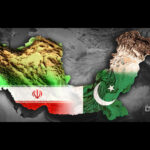China and Russia have launched joint naval exercises in the Sea of Japan, aiming to bolster their strategic partnership and counterbalance what they perceive as a global order dominated by the United States.
In recent years, the two nations have significantly deepened their cooperation, with China providing crucial economic support to Russia amid Western sanctions imposed due to Moscow’s invasion of Ukraine. The “Joint Sea-2025” drills began in waters near the Russian port of Vladivostok and are scheduled to continue for three days, according to a statement released by China’s Ministry of National Defence on Sunday.
The exercises will feature a range of operations including submarine rescue missions, joint anti-submarine warfare, air defense and anti-missile drills, as well as maritime combat scenarios.
China has deployed four naval vessels for the exercises, including the guided-missile destroyers Shaoxing and Urumqi, which will operate alongside Russian warships, the ministry confirmed.
Following the conclusion of the drills, the two countries plan to conduct naval patrols in “relevant waters of the Pacific,” signaling an ongoing commitment to maritime cooperation. The annual “Joint Sea” exercises have been conducted since 2012, with last year’s drills taking place off China’s southern coast.
This year’s drills in the Sea of Japan have raised concerns in Tokyo. In its recent annual report, Japan’s Ministry of Defence warned that China’s expanding military collaboration with Russia poses significant security risks to the region.
In response to these concerns, the Russian Navy’s Pacific Fleet described the exercises as “defensive in nature and not directed against other countries,” according to the US Naval Institute’s online news and analysis platform. Meanwhile, China’s Defence Ministry stated on Friday that the drills are designed to “further deepen the comprehensive strategic partnership” between the two nations.
China has consistently refrained from condemning Russia’s ongoing war, which has entered its fourth year, nor has it called for Russian troop withdrawals. Many of Ukraine’s Western allies, including the United States, suspect Beijing of providing support to Moscow during the conflict.
European leaders urged China last month to leverage its influence to persuade Russia to end the war, but there is no indication that Beijing will take such steps.
China maintains its position as a neutral party, frequently calling for an end to hostilities while simultaneously accusing Western countries of prolonging the conflict by supplying arms to Ukraine.





